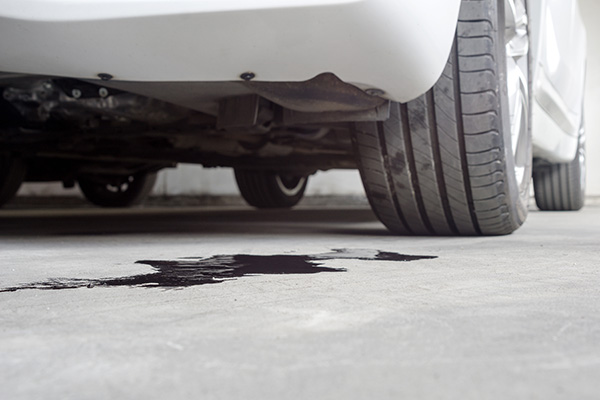
You step outside to find a mysterious puddle under your car. What is it, and should you be concerned? Car fluid leaks can feel like a frustrating guessing game, but they signal something important about your vehicle's health. Whether you're cruising around Easton, PA, or parked in your driveway, understanding the signs and causes of fluid leaks can save you time, money, and stress. Let’s unravel this mystery and help you keep your car in great shape.
Fluid Leaks
Ignoring a fluid leak is never a good idea. Each type of fluid in your car serves a vital purpose, from lubricating the engine to keeping your brakes reliable. When something is leaking, it’s often a warning sign that a component isn’t functioning as it should. Left unchecked, even a small leak can escalate into a costly repair.
Leaks can also impact your car’s performance and safety. For example, a brake fluid leak compromises your ability to stop, while a coolant leak can lead to engine overheating. The earlier you catch and address a leak, the better your chances of avoiding major damage.
Common Culprits Behind Fluid Leaks
Engine Oil
Dark brown or black spots under your vehicle often indicate an engine oil leak. These leaks typically occur due to worn-out gaskets, seals, or an improperly fitted oil filter. If ignored, oil leaks can lead to insufficient lubrication, which could damage your engine over time.
Coolant
Coolant leaks leave behind colorful puddles—usually green, pink, or orange—that may have a sweet smell. A cracked radiator, damaged hose, or faulty water pump is often the cause. Over time, low coolant levels can cause your engine to overheat, which is both dangerous and expensive to fix.
Brake Fluid
Brake fluid is crucial for your car’s braking system. Leaks often appear as clear or slightly yellow puddles near the wheels or under the brake pedal. A leak in this system isn’t just inconvenient—it’s dangerous. If you suspect a brake fluid issue, it’s time to act immediately.
Transmission Fluid
This fluid is usually reddish or pink and is essential for keeping your car shifting gears properly. Leaks often stem from worn seals or a damaged transmission pan. Low transmission fluid can result in overheating and jerky shifting, so addressing this on time is necessary.
Power Steering Fluid
If your steering feels unusually stiff or you notice reddish-brown fluid under your car, the power steering fluid might be the culprit. Leaks often occur due to a cracked reservoir or damaged hoses, making it harder to control your vehicle safely.
How to Identify a Fluid Leak
Not sure which fluid is leaking? A quick way to narrow it down is to pay attention to the color and location of the puddle. Placing a piece of cardboard under your car overnight can help you identify the type and amount of fluid lost. Checking your dashboard warning lights or monitoring changes in how your car performs can also offer clues.
Preventing Leaks
While no car is immune to wear and tear, regular maintenance can significantly reduce the risk of fluid leaks. Here are a few tips to keep your vehicle in good condition:
- Regular Inspections: Periodic checks of your car’s fluid levels and systems can catch issues early.
- Replace Worn Parts: Hoses, seals, and gaskets are common culprits for leaks. Replacing them before they fail can prevent a leak from starting.
- Keep Fluids Topped Off: Running your car with low fluid levels can cause more stress on your vehicle, leading to leaks or other damage.
When It’s Time to Call the Pros
If you’re dealing with a persistent or unidentified fluid leak, it’s best to let us handle the issue. We can pinpoint the source, repair the damage, and make sure your car is safe to drive. Acting sooner rather than later often means saving yourself from more extensive (and expensive) repairs.
Spotted a suspicious puddle under your car? Trust the experts at Jeff's Automotive in Easton, PA. We offer reliable fluid leak inspections and repairs to keep your car performing its best. Book your service now!